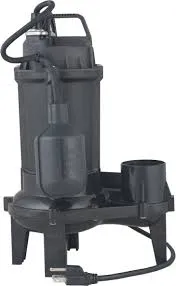Afrikaans
- Afrikaans
- Albanian
- Amharic
- Arabic
- Armenian
- Azerbaijani
- Basque
- Belarusian
- Bengali
- Bosnian
- Bulgarian
- Catalan
- Cebuano
- Corsican
- Croatian
- Czech
- Danish
- Dutch
- English
- Esperanto
- Estonian
- Finnish
- French
- Frisian
- Galician
- Georgian
- German
- Greek
- Gujarati
- Haitian Creole
- hausa
- hawaiian
- Hebrew
- Hindi
- Miao
- Hungarian
- Icelandic
- igbo
- Indonesian
- irish
- Italian
- Japanese
- Javanese
- Kannada
- kazakh
- Khmer
- Rwandese
- Korean
- Kurdish
- Kyrgyz
- Lao
- Latin
- Latvian
- Lithuanian
- Luxembourgish
- Macedonian
- Malgashi
- Malay
- Malayalam
- Maltese
- Maori
- Marathi
- Mongolian
- Myanmar
- Nepali
- Norwegian
- Norwegian
- Occitan
- Pashto
- Persian
- Polish
- Portuguese
- Punjabi
- Romanian
- Russian
- Samoan
- Scottish Gaelic
- Serbian
- Sesotho
- Shona
- Sindhi
- Sinhala
- Slovak
- Slovenian
- Somali
- Spanish
- Sundanese
- Swahili
- Swedish
- Tagalog
- Tajik
- Tamil
- Tatar
- Telugu
- Thai
- Turkish
- Turkmen
- Ukrainian
- Urdu
- Uighur
- Uzbek
- Vietnamese
- Welsh
- Bantu
- Yiddish
- Yoruba
- Zulu
Telephone: +86 13120555503
Email: frank@cypump.com
Nov . 26, 2024 08:01 Back to list
Effective Ejector Pumps for Efficient Sewage Management and Wastewater Solutions
Understanding Ejector Pumps for Sewage Applications
Ejector pumps play a pivotal role in sewage management systems, especially in residential and commercial buildings where gravity drainage is not feasible. These pumps are specifically designed to handle wastewater and are crucial for transporting sewage from lower elevations to higher ground or to a sewer line. In this article, we will delve into the significance, functionality, and advantages of ejector pumps in sewage systems.
What is an Ejector Pump?
An ejector pump, often referred to as a sewage ejector pump, is a type of centrifugal pump that utilizes a motor-driven impeller to create a flow of liquid. The unique aspect of ejector pumps is their ability to handle solids and heavy sewage materials, making them distinct from standard sump pumps. Typically installed in basements or below-grade areas, these pumps work by collecting sewage and pushing it upwards through pipes to connect with the main sewer line or a septic system.
How Do Ejector Pumps Work?
Ejector pumps operate using a simple yet effective mechanism. When wastewater enters the pump's sump pit, a float switch detects the water level and activates the pump. The impeller of the pump then spins rapidly, creating a vortex that draws in the sewage. This mixture of liquid and solids is then forced upward through a discharge pipe. Depending on the elevation change, ejector pumps can efficiently lift wastewater several feet, making them indispensable for situations where sewer lines are located at a higher elevation than the discharge point.
Applications of Ejector Pumps
Ejector pumps are commonly used in a variety of applications. In residential settings, they are often found in homes built below the level of the municipal sewer line, in bathrooms located in basements, or in areas with poor drainage. Commercial applications can include restaurants, industrial facilities, and any business where wastewater management is necessary. Governments and municipalities also rely on ejector pumps in sewage treatment plants and facilities to manage waste efficiently.
Advantages of Ejector Pumps
ejector pumps for sewage

1. Versatility One of the most significant benefits of ejector pumps is their ability to handle a variety of waste materials, including solids and sludge, which many standard pumps cannot process.
2. Space-saving Designs Ejector pumps typically have a compact footprint, making them ideal for installations in tight spaces or areas with limited access.
3. Efficient Waste Management By effectively raising wastewater to the desired level for disposal, ejector pumps prevent sewage backups and overflows, which can lead to health hazards and property damage.
4. Durability and Reliability Ejector pumps are designed to withstand harsh conditions and are built from robust materials to ensure longevity and consistent performance.
Maintenance Considerations
While ejector pumps are generally reliable, regular maintenance is essential to ensure optimal performance. Homeowners and facility managers should periodically inspect the pump, check for clogs in the discharge lines, and clean the sump basin. Ensuring that the float switch is functioning correctly is also crucial, as it automatically controls the operation of the pump.
Conclusion
Ejector pumps are indispensable tools in modern wastewater management systems. Their ability to efficiently transport sewage from lower to higher elevations makes them invaluable for homes and businesses alike. Understanding their functionality and maintaining them is key to ensuring that your sewage management system operates smoothly and effectively, safeguarding both health and property in the process. As technology continues to evolve, the designs and efficiencies of ejector pumps will likely improve, further enhancing their role in sewage management.
-
ISG Series Vertical Pipeline Pump- Chi Yuan Pumps Co., LTD.|High Efficiency&Compact Design
NewsAug.02,2025
-
Heavy-Duty Mining Sludge Pumps - Wear-Resistant Slurry Handling
NewsAug.02,2025
-
Horizontal Split Case Pump with GPT-4 Turbo | High Efficiency
NewsAug.01,2025
-
ISG Series Pipeline Pump - Chi Yuan Pumps | High Efficiency, Durable Design
NewsAug.01,2025
-
Advanced Flue Gas Desulfurization Pump with GPT-4 Turbo | Durable & Efficient
NewsJul.31,2025
-
ISG Series Vertical Pipeline Pump - Chi Yuan Pumps | Advanced Hydraulic Design&Durable Construction
NewsJul.31,2025










